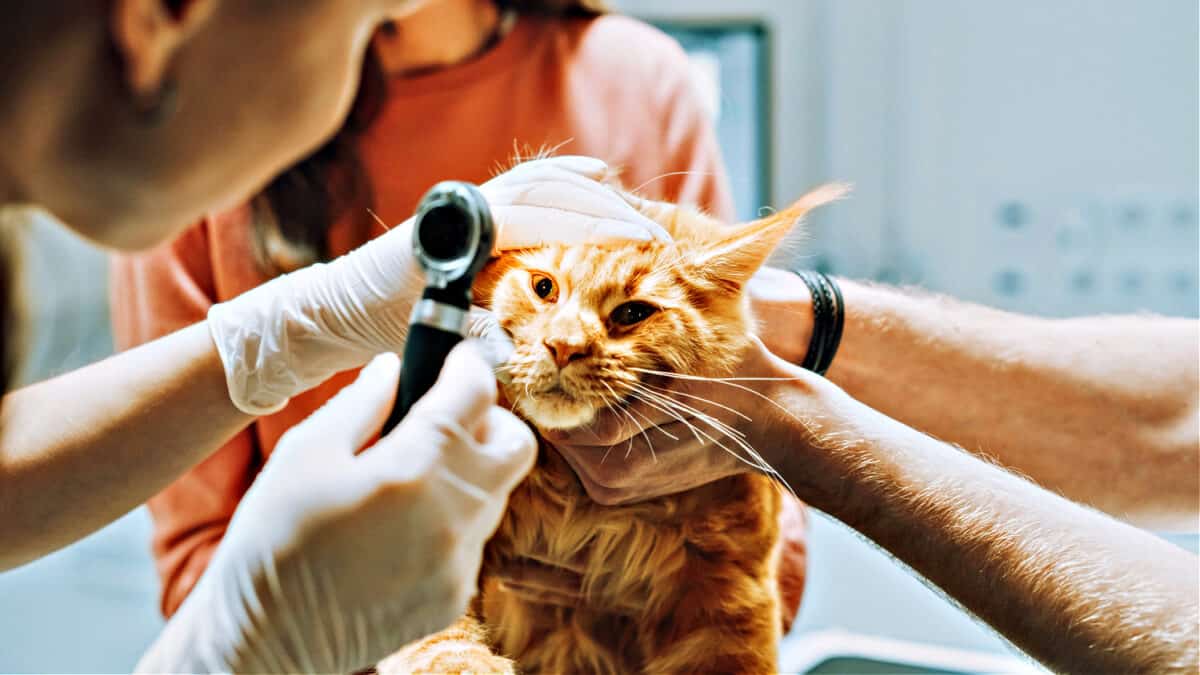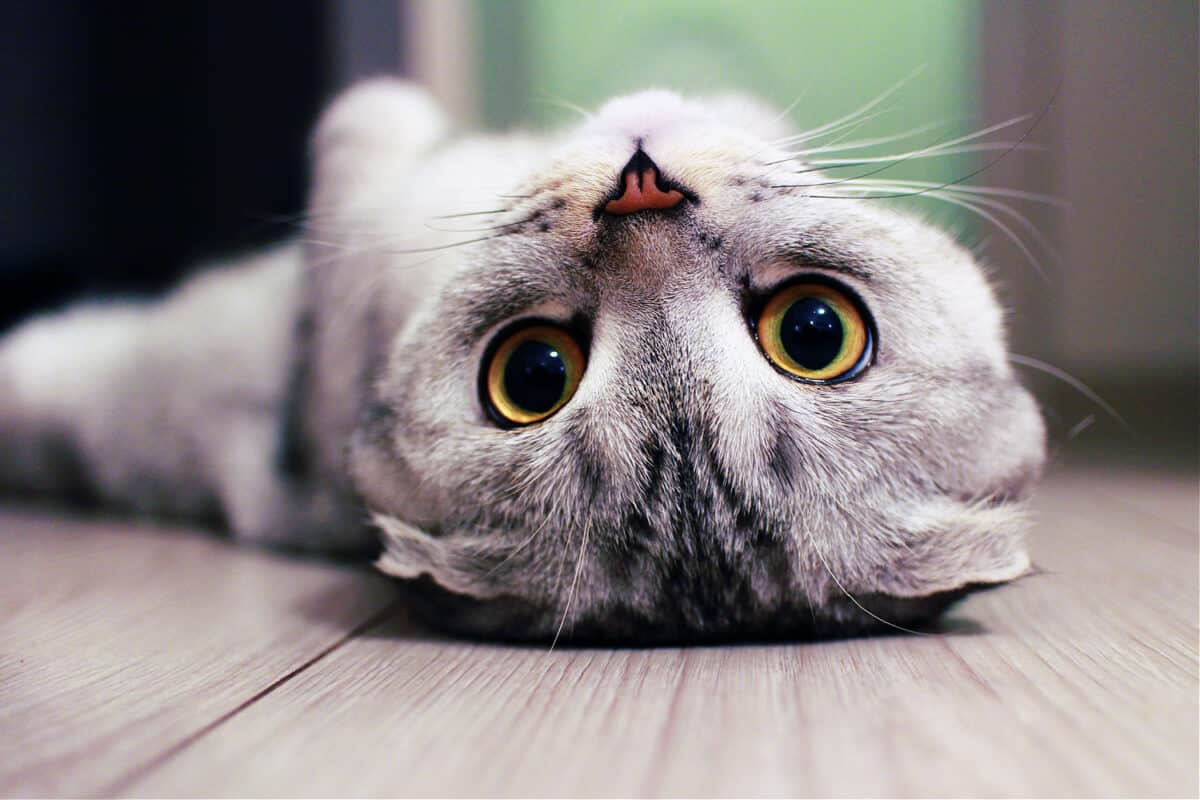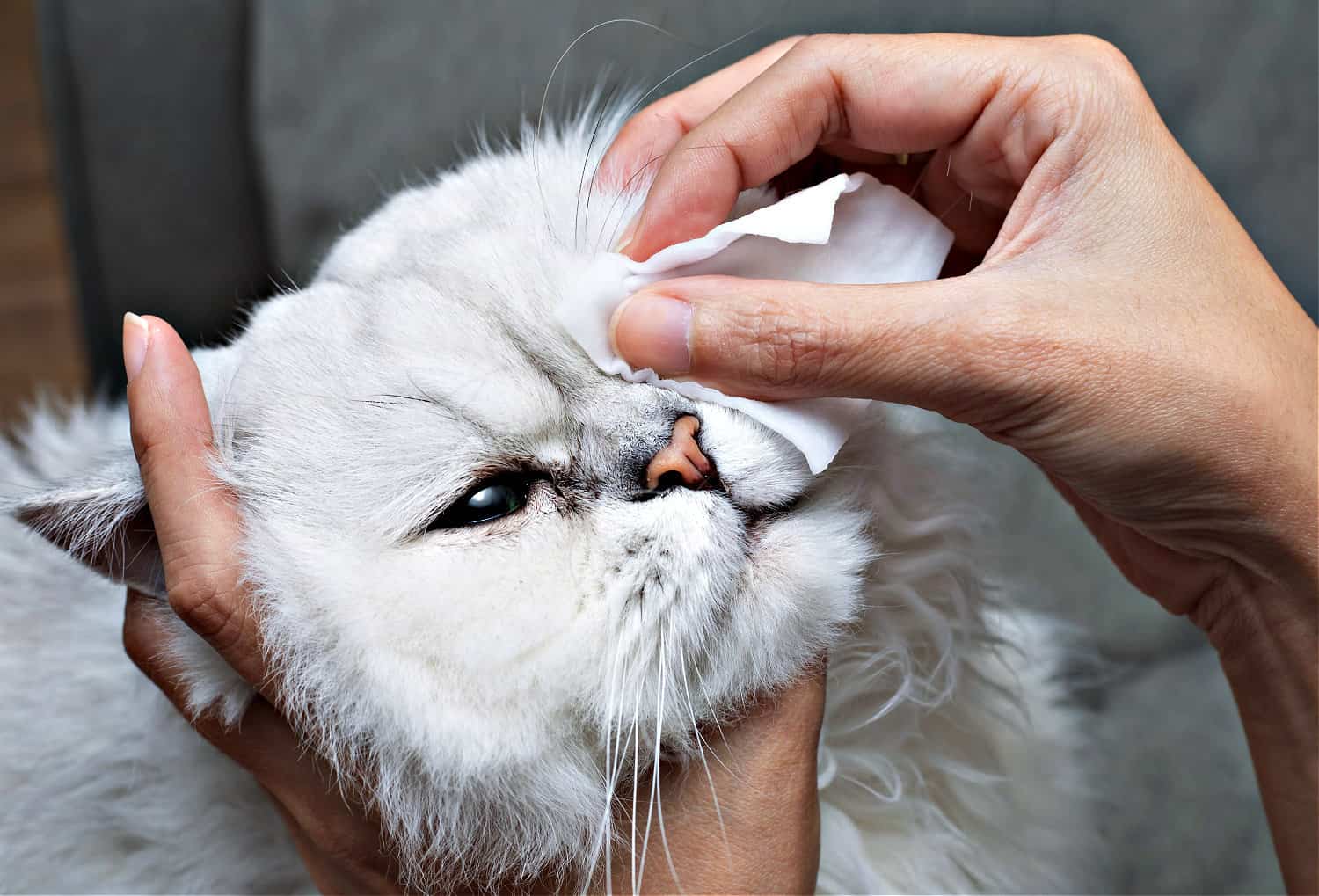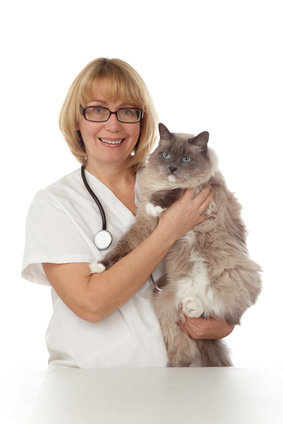Ever heard of ocular (eye) herpes in cats? Yes, they can catch it too! It's a cunning virus that targets their respiratory system and in some instances, their eyes. Particularly in kittens, this can cause a severe eye infection threatening their sight.
What's this virus and how does it work? How can you tell if your cat's at risk? Let's talk about this subject, exploring the symptoms, treatment, and prevention. We'll keep the medical jargon to a minimum, making it simple for you to understand and act in the best interest of your pet.

A Cunning Virus: The Cat's Version of Herpes
Sure, you've heard about herpes in humans, but did you realize our fluffy friends can be victims too? They can and this virus generally assaults a cat's breathing apparatus. Yet, it can be even more nefarious, particularly in vulnerable kittens.
In these cases, it can make a beeline for the eyes. The outcome? A severe eye infection that could rob our kittens of their precious sight.
What is Feline Herpes Virus?
The vast majority of cats are exposed to Feline Herpes Virus (FHV-1) at some point in their lives. This extremely infectious pathogen can cause a respiratory infection, known as Feline Viral Rhinotracheitis, or FVR for short.
You can read more about FVR, its symptoms, prevention, and treatment in our article about the topic - Feline Herpes and Rhinotracheitis.
Like other herpes viruses, FHV-1 employs an interesting strategy. Following the initial infection, it literally hides from the body's immune system. Its place of hiding?
Nerve ends, where it can stay dormant for weeks, months, years, and even a lifetime. In some cats, when the virus senses an opportunity, such as increased stress and a weakening of the immune system, it resurfaces, causing renewed infection.
The feline herpes virus usually infects the respiratory system and sometimes causes a chronic condition with flare-ups at various intervals. However, sometimes the eyes are directly affected by the virus, as it burrows into the facial nerves leading to the eyes.
When that happens, the virus attacks eye tissue directly, creating herpetic lesions inside the eye. These lesions can scar the cornea, leading to significant vision impairment and even blindness.

What are the symptoms of feline ocular (eye) herpes?
Herpes-induced eye infections often follow the respiratory infection known as Feline Viral Rhinotracheitis. Squinting, runny eyes, and conjunctivitis are actually often displayed as part of the respiratory infection, even when the eye itself has no herpetic lesions. They do not necessarily imply the cat's eyes are directly infected.
Your vet will examine your cat's eyes in order to determine the presence of virus-induced lesions in the eye itself. He or she may also test for the presence of the virus in the cat's body. When the virus does attack, it multiplies in the eye itself while damaging eye cells and creating lesions.
Left untreated, bacteria can then lodge themselves in the lesions and create a secondary -- and often more serious -- infection.
Many stray and feral kittens lose their eyesight when a bacterial infection sets in following a viral herpes infection.
SIGN UP FOR THECATSITE'S EMAIL UPDATES >
Treatment of feline ocular herpes
Treatment is very important in cases of eye herpes. Without treatment, there is a risk of permanent damage to the eye and even blindness.
Oral antiviral drugs may be prescribed to fight the overall herpes infection in the body, however, they cannot reach the eye's surface where the virus attacks, as that part of the eye has no blood vessels to deliver the drug by.
That's why an important part of the treatment involves using anti-viral drops and ointments to be administered diligently on the surface of the cat's eye.
Your vet will prescribe a special eye ointment for the treatment. Do not use OTC antiviral ointments in your cat's eye! The wrong kind of ointment can damage the cat's delicate eyes and cause pain.
In most cases, your veterinarian will also prescribe antibiotics to fight or prevent secondary bacterial infection.
Prevention of feline ocular herpes
Vaccinating your kitten for feline herpes is your first line of defense. With the feline herpes virus being so common, it's imperative to vaccinate the kitten on schedule. The vaccination is not 100% effective in preventing infection, but in addition to the protection from initial infection, vaccinated cats are less likely to develop a major disease.
Boosters for this vaccine may be needed later on during the cat's lifetime. Consult with your vet regarding the best vaccination schedule for your cat, as this may depend on the cat's overall health and living conditions.
Many owners of "herpes kitties" still choose to supplement their cat's diet with the amino acid L-lysine. Unfortunately, recent studies show that this isn't effective against the feline herpes virus.
Even if you choose to use l-lysine, please remember that no supplementation can replace topical anti-viral medication in the case of active ocular herpes infection. Forgoing proper medical treatment for this condition could make your cat blind, so please follow the vet's orders and take good care of your cat's eyes!

Ocular Herpes in Cats - Things to Remember
To recap, here are a few things to remember about eye herpes in cats -
- Ocular herpes is caused by the same virus that causes the common respiratory disease in cats known as Rhinotracheitis.
- The feline herpes virus is not contagious to humans or dogs.
- The feline herpes virus is very infectious among cats.
- Once a cat gets the virus, he or she is a carrier for life and may develop a chronic condition.
- Vaccination for FVR is your first line of defense in protecting your cat from feline herpes.
- Only your vet can determine if your cat has eye herpes or not.
- Topical antiviral drugs are the treatment of choice for ocular herpes. Only use the ones prescribed by your vet!
- L-lysine supplementation is thought to prevent recurrent outbreaks of feline herpes, but at this point, it is not backed by substantial scientific evidence.
A Healthy Cat is a Happy Cat: Preventing Herpes in Our Furry Friends
A world with fewer sick cats is a happier one, isn't it? With our help, it's possible to minimize the damage caused by this crafty virus. Vaccination is our first and best line of defense. Plus, keeping an eye on their overall health and monitoring for any unusual signs can make a huge difference.
It might not be a foolproof method, but it's a significant step toward securing their well-being. Always remember, a healthy cat is indeed a happy cat, and they rely on us to keep them that way.
Read more about cat eyes here:
Your Cat’s Eyes and Vision: The Complete Guide
SIGN UP FOR THECATSITE'S EMAIL UPDATES >
Comments? Leave them using the form below. Questions? Please use the cat forums for those!
Note: We may get commissions for purchases made through links on this page.




3 comments on “Ocular (Eye) Herpes In Cats – A Comprehensive Guide For Owners”